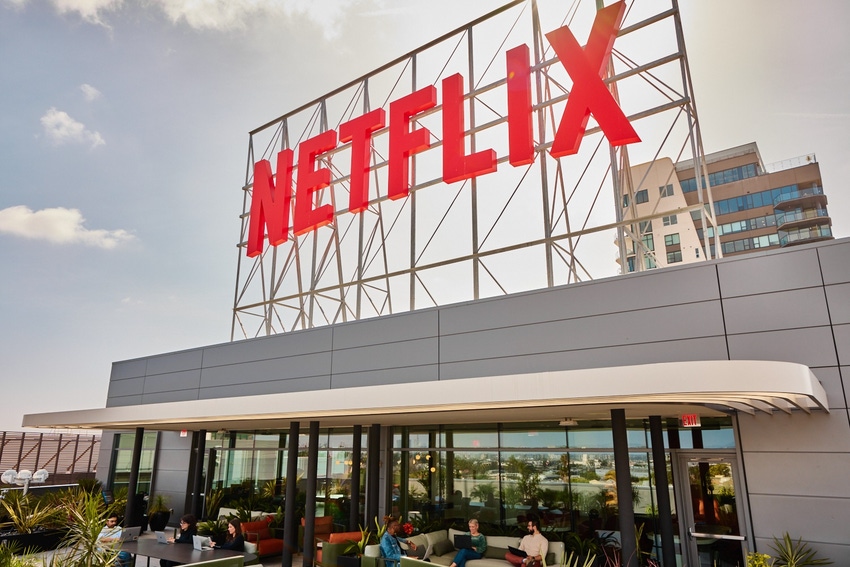Netflix, SK end dispute with partnership focused on bundling and AI
Dispute between Netflix and SK Broadband and SK Telecom about who should cover a portion of network-related costs stems from a surge in traffic fueled by the debut of popular Netflix hit series 'Squid Game.'

At a Glance
- Netflix and SK Broadband have formed a partnership that ends a dispute over network-related streaming costs.
- Financial terms were not revealed, but the companies will collaborate on Netflix-infused bundles and the use of AI tech.
- The settlement arises amid a 'fair share' debate that is roiling in Europe.
South Korea's SK Broadband and Netflix have settled a dispute centering on whether Netflix should cover a portion of network-related costs the broadband operator incurs by delivering the popular streaming service.
Under a "strategic partnership" announced Monday, SK Broadband and Netflix will, at a high level, work together to improve the consumer streaming experience and make it easier for broadband customers to access Netflix on multiple devices, including smartphones and IP-connected set-top boxes.
Much of that concerns bundling Netflix with SK Telecom and SK Broadband services starting in the first half of 2024. Among those coming offers, SK Telecom intends to offer a mix of bundles featuring Netflix in its "T Universe" subscription service. Future package options will also feature Netflix's relatively new ad-supported option.
The two sides said they'll also seek ways to integrate Artificial Intelligence (AI) technologies developed by SK Telecom and SK Broadband, such as "conversational" user experience and personalized recommendation technologies.
Other terms were not announced; it's not clear if SK will use an edge caching system, such as Netflix's Open Connect platform, to help reduce network streaming costs or if the operator and Netflix have entered into a paid peering agreement. However, they did serve up the vague notion that the partnership would enable Netflix to "establish deeper connections" with more SK Telecom and SK Broadband customers.
Update: Though usage fees are nowhere to be found in the public-facing elements of the settlement, SK Broadband reportedly is expected to receive fees from Netflix as a result. Some industry watchers say it's disappointing that the financial terms were not shared publicly as the debate surrounding the situation continues in other parts of the world.
"Netflix’s decision to settle is telling," Strand Consult noted in this� post about the settlement. "It suggests that Netflix’s arguments about being entitled to free use other networks and that data exchange and settlement are free are not justified. If other parties set the terms of compensation, it is less likely to be favorable to Netflix, as the compensation could include years of past usage and many investment elements like undersea cables, servers, ports and so on. At the same time, it is unfortunate for policymakers not to have the transparency about the settlement."
The deployment of Netflix Open Connect Appliances by SK are included in the agreement, Roslyn Layton, executive vice president of Strand Consult, told Light Reading via email.
Battle started with 'Squid Game' surge
The partnership enters the picture following a years-long legal battle over network costs associated with Netflix's streaming service.
Back in 2021, SK Broadband sued Netflix for a share of the cost of delivering the streaming service amid a massive surge in usage due to the popularity of hit series "Squid Game." The operator argued at the time that Netflix should be on the hook to pony up about $23 million in fees for 2020 alone.
Netflix countered that SK Broadband was trying to "extract an arbitrary payment" and that imposing network usage fees on the streaming giant would create an "unfair, anti-competitive environment" among a streaming sector that includes the likes of Amazon and Disney.
Netflix also offered up its Open Connect platform as a possible solution, but SK Broadband rejected it. Comcast also balked at deploying Netflix's Open Connect edge appliance. The cable operator and Netflix took a different path in 2014 via a paid interconnection agreement.
The Netflix-SK Broadband scrum emerged amid a broader "fair share" debate in Europe about whether "large traffic generators" (like Netflix) should cover some of the costs of network operators.
Telefónica recently stated its case in favor of a fair share regime in the form of a math-riddled study (PDF) despite data showing that operating costs, despite a rise in traffic, have been relatively stable at the operator in recent years. The operator also clarified that about a third of its investments in fixed networks and about two-thirds of investments in mobile networks are due to traffic growth.
Read more about:
AsiaAbout the Author(s)
You May Also Like











